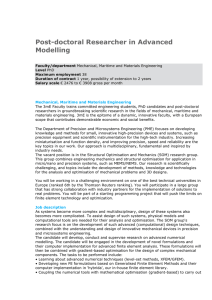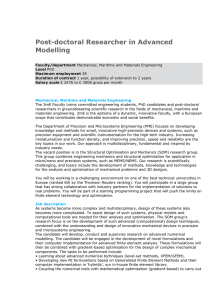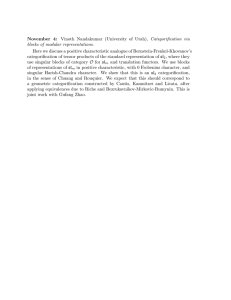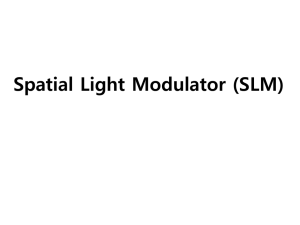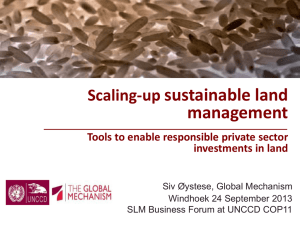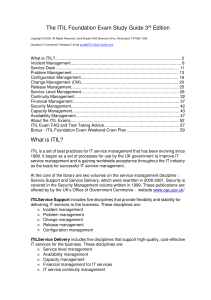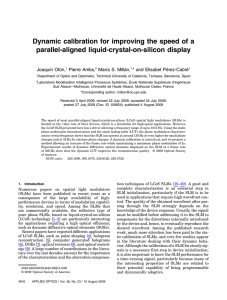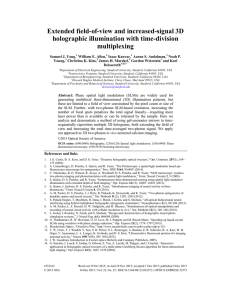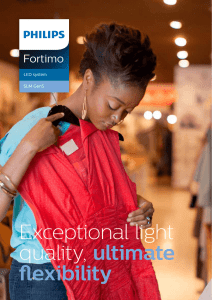Post-doc: Process Modelling of Additive Manufacturing
advertisement
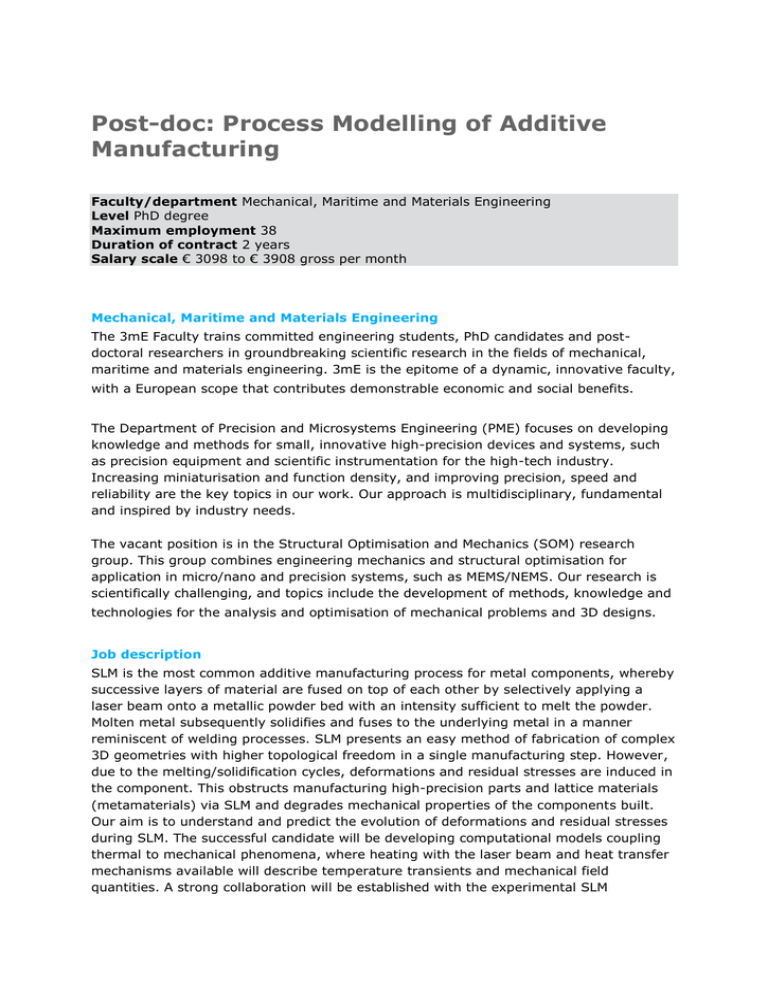
Post-doc: Process Modelling of Additive Manufacturing Faculty/department Mechanical, Maritime and Materials Engineering Level PhD degree Maximum employment 38 Duration of contract 2 years Salary scale € 3098 to € 3908 gross per month Mechanical, Maritime and Materials Engineering The 3mE Faculty trains committed engineering students, PhD candidates and postdoctoral researchers in groundbreaking scientific research in the fields of mechanical, maritime and materials engineering. 3mE is the epitome of a dynamic, innovative faculty, with a European scope that contributes demonstrable economic and social benefits. The Department of Precision and Microsystems Engineering (PME) focuses on developing knowledge and methods for small, innovative high-precision devices and systems, such as precision equipment and scientific instrumentation for the high-tech industry. Increasing miniaturisation and function density, and improving precision, speed and reliability are the key topics in our work. Our approach is multidisciplinary, fundamental and inspired by industry needs. The vacant position is in the Structural Optimisation and Mechanics (SOM) research group. This group combines engineering mechanics and structural optimisation for application in micro/nano and precision systems, such as MEMS/NEMS. Our research is scientifically challenging, and topics include the development of methods, knowledge and technologies for the analysis and optimisation of mechanical problems and 3D designs. Job description SLM is the most common additive manufacturing process for metal components, whereby successive layers of material are fused on top of each other by selectively applying a laser beam onto a metallic powder bed with an intensity sufficient to melt the powder. Molten metal subsequently solidifies and fuses to the underlying metal in a manner reminiscent of welding processes. SLM presents an easy method of fabrication of complex 3D geometries with higher topological freedom in a single manufacturing step. However, due to the melting/solidification cycles, deformations and residual stresses are induced in the component. This obstructs manufacturing high-precision parts and lattice materials (metamaterials) via SLM and degrades mechanical properties of the components built. Our aim is to understand and predict the evolution of deformations and residual stresses during SLM. The successful candidate will be developing computational models coupling thermal to mechanical phenomena, where heating with the laser beam and heat transfer mechanisms available will describe temperature transients and mechanical field quantities. A strong collaboration will be established with the experimental SLM researchers in the faculty for validation of models and making use of experimental findings as input to the simulations. In order to ensure the models developed are computationally tractable and compatible with topology optimisation, model reduction will be analysed. The successful candidate is also expected to contribute to the research proposals for securing research funds. Requirements Applicants should have a PhD degree in Mechanical or Materials Engineering or a closely related field with outstanding results, and a strong background in solid mechanics and computational methods. Excellent writing and presentation skills in English are also required. Conditions of employment TU Delft offers an attractive benefits package, including a flexible work week and the option of assembling a customised compensation and benefits package (the 'IKA'). Salary and benefits are in accordance with the Collective Labour Agreement for Dutch Universities. Information and application For more information about this position please contact Can Ayas, phone: +31 (0)152781550, e-mail: c.ayas@tudelft.nl. To apply, please e-mail two recommendation letters, a complete CV with publication list, and a cover letter by 30 August 2015 to Dr. Ayas (c.ayas@tudelft.nl). Applications after this date will be considered if the post is still vacant. When applying for this position, please refer to vacancy number 15-24.
